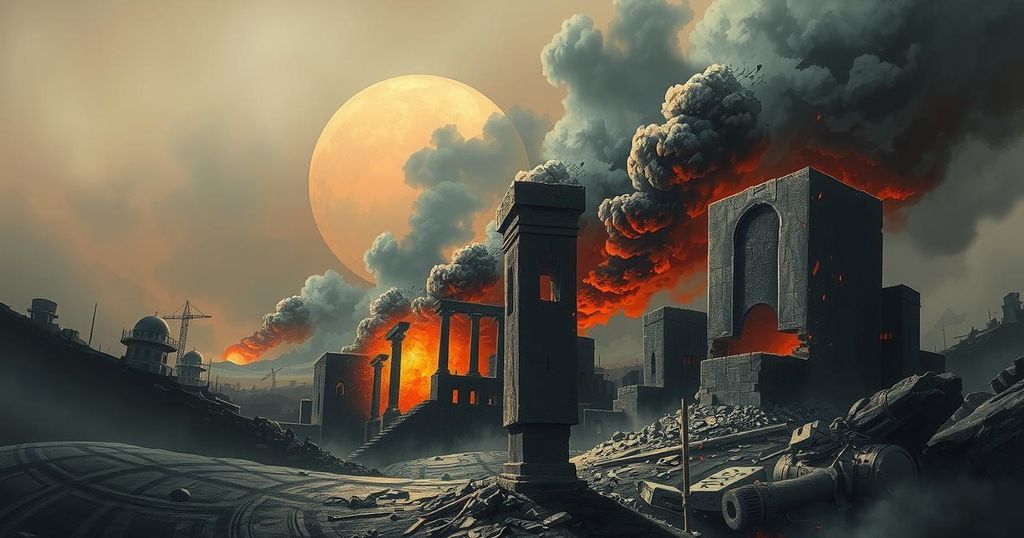Iran’s Strategic Dilemma Amid U.S. and Israeli Military Actions
Iran is currently in a challenging situation due to recent U.S. strikes on Houthi forces in Yemen and Israeli operations in Gaza, causing uncertainty regarding its response. The country seeks to fortify ties with Russia and China, aiming to counteract U.S. pressure while addressing the concerns of its allies. Iran’s reliance on proxies and the risk of losing influence if these alliances weaken add to the complexity of its geopolitical strategy.
Iran currently faces a precarious situation following recent military strikes by the United States in Yemen and Israel’s operations in Gaza. These events leave Iran uncertain about its next steps, as the government remains wary of escalating conflicts while grappling with the nuanced political landscape. Concerns regarding a major confrontation contribute to this confusion, especially as Iran’s Supreme Leader has advised the nation to remain skeptical of any overtures from the Trump administration.
In diplomatic developments, Iranian Foreign Minister Abbas Araqchi conducted a meeting with Russian Deputy Foreign Minister Alexander Grushko in Tehran. They emphasized the need to strengthen bilateral relations and enhance regional stability, highlighting Iran’s role in supplying kamikaze drones to Russia for the Ukraine conflict. The discussions also touched on collaboration in nuclear issues and broad bilateral interests, demonstrating Iran’s desire for support from both Russia and China amid geopolitical tensions.
Araqchi vehemently criticized U.S. and U.K. military actions in Yemen and the Israeli attacks faced by Palestinians during an event with foreign diplomats. He called upon Muslim nations to increase their efforts to address these issues, particularly during the holy month of Ramadan. This approach indicates Iran’s attempt to forge a united front against perceived aggressions.
Simultaneously, Iran is pursuing multiple objectives: fostering closer ties with Russia and China, alleviating sanctions, and supporting Islamic causes against U.S. and Israeli interests. Amir-Sa’eed Iravani, Iran’s UN representative, echoed this sentiment, denouncing perceived U.S. aggression and provocative rhetoric from American officials. Iran seems to prefer diplomatic avenues in addressing current confrontations, yet its support for the Houthis poses a significant dilemma.
With its proxies in Yemen and elsewhere faltering, Iran risks losing its influence should these alliances weaken further. Historically, Iran has invested heavily in these regions with groups like the Houthis, the Assad regime, and Hezbollah. If proactive measures are not taken, Iran may find that its network of allies becomes more of a liability than an asset, jeopardizing its regional aspirations and leverage.
In summary, Iran finds itself in a delicate position amid recent conflicts involving the United States and Israel. As Iran seeks to solidify its relationships with Russia and China while addressing domestic and foreign pressures, it must navigate a fine line to maintain its influence. The need for strategic diplomacy is urgent, yet the inherent risks of losing allied support in regions such as Yemen and Gaza present serious challenges. Ultimately, Iran’s ability to respond effectively may determine the sustainability of its foreign alliances and regional standing.
Original Source: www.jpost.com




Post Comment